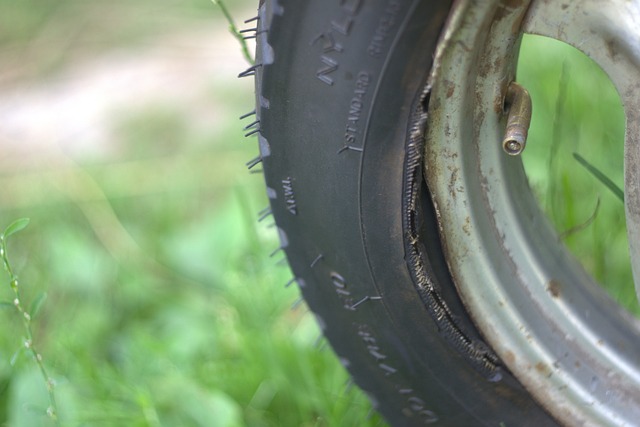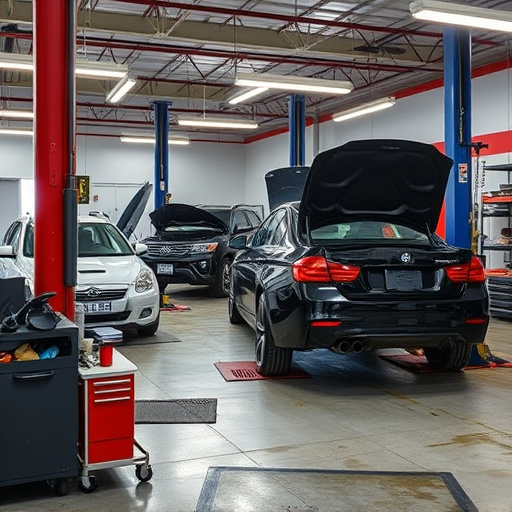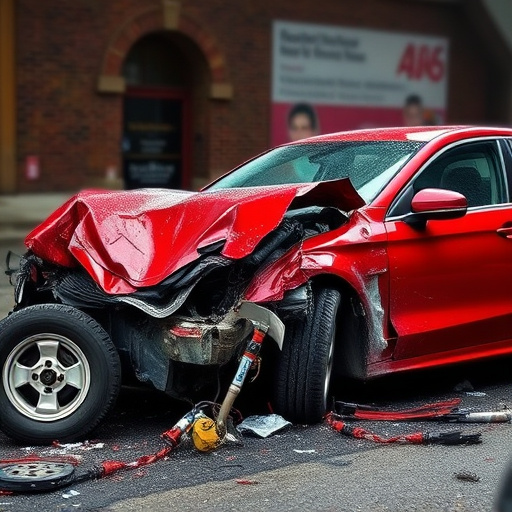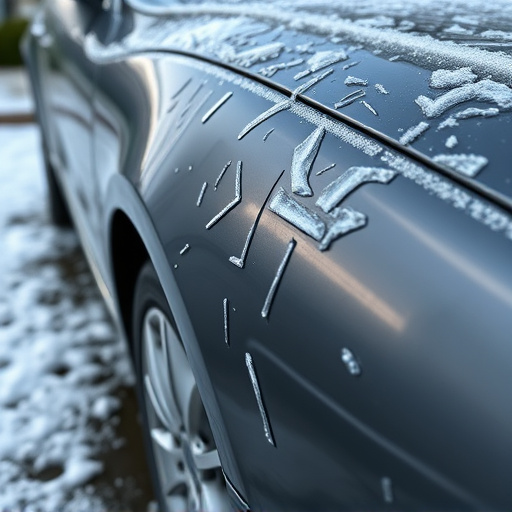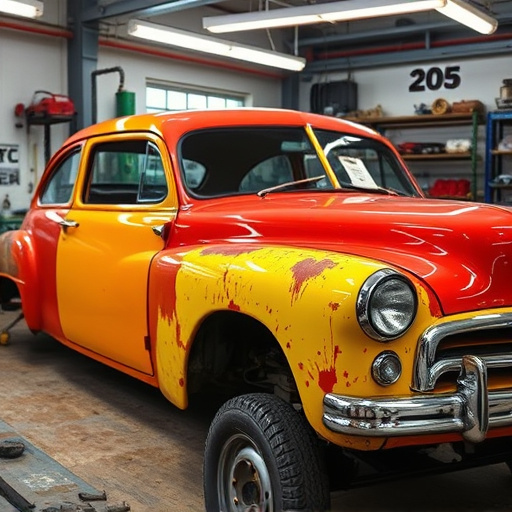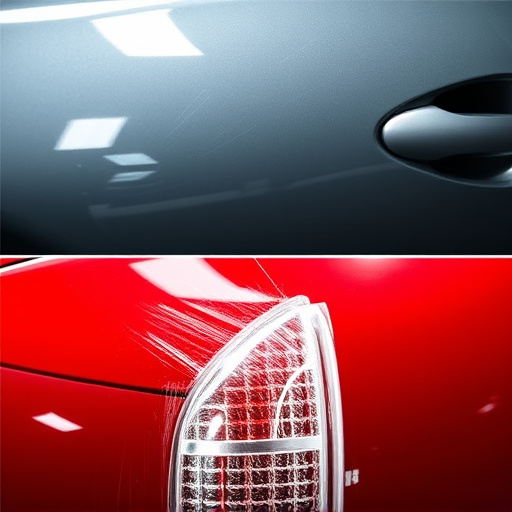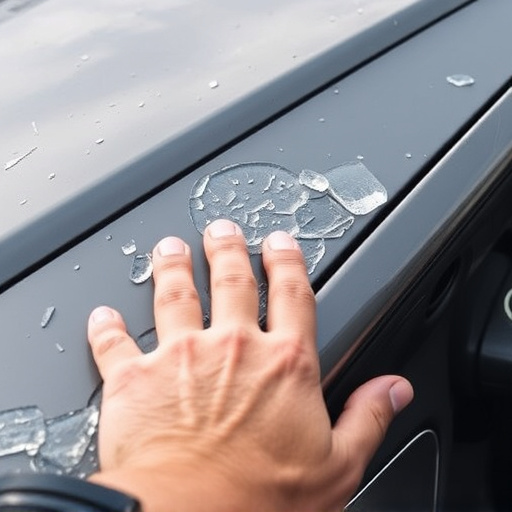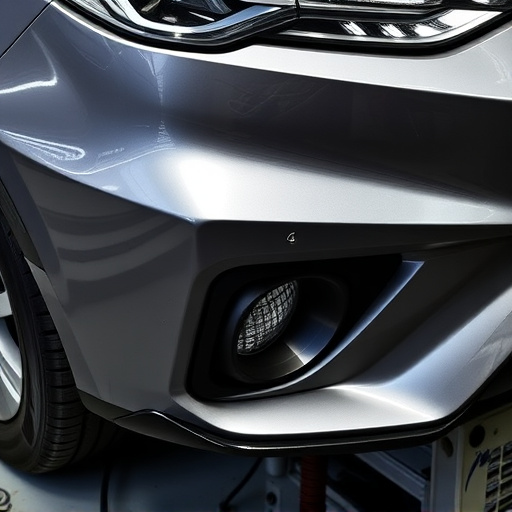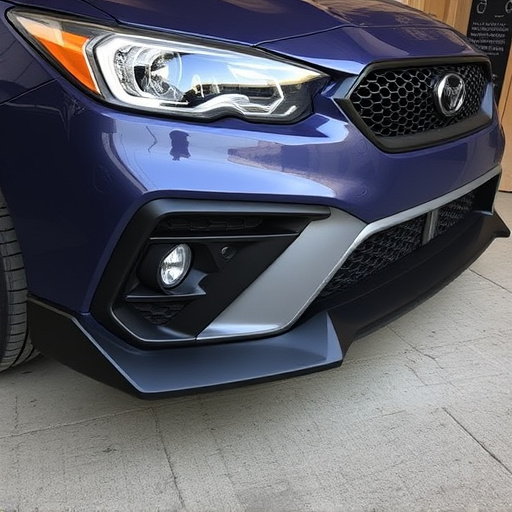Stringent frame repair safety standards are crucial for structural integrity and passenger safety. Advanced frame machines use sophisticated sensors, precision engineering, and algorithms to enhance efficiency, reduce turnaround times, and meet industry benchmarks. Rigorous testing simulates collision scenarios to ensure equipment capability and repair reliability, catering to high-end brands while fostering overall safety in bustling automotive environments.
In the realm of automotive maintenance, ensuring the integrity of a vehicle’s frame is paramount. This article explores advanced frame machines designed to meet stringent safety standards, revolutionizing frame repair. We delve into the critical aspect of understanding these safety standards for frame repair, highlighting advanced technologies that underpin modern frame machine design. Furthermore, we emphasize the importance of rigorous testing in guaranteeing quality and reliability.
- Understanding Safety Standards for Frame Repair
- Advanced Technologies in Frame Machine Design
- Ensuring Quality and Reliability Through Testing
Understanding Safety Standards for Frame Repair

When it comes to frame repair, understanding and adhering to safety standards is paramount. These guidelines are designed to ensure structural integrity and passenger safety in automotive repairs, particularly after accidents or damage. Frameworks play a crucial role in vehicle stability, and any alterations must be precise and in line with set protocols.
Automotive repair technicians need to be well-versed in these safety standards, focusing on aspects like frame alignment, welding procedures, and the use of specialized equipment. Compliance ensures that repairs not only meet but exceed industry benchmarks, making every vehicle safe for the road again. Moreover, understanding these standards is essential for auto glass repair and other vehicle repair processes, as they often interact with the frame to ensure a secure driving experience.
Advanced Technologies in Frame Machine Design

In the realm of automotive repair, advanced frame machines have emerged as game-changers, revolutionizing the way vehicle body shops handle frame repair and ensuring they meet stringent safety standards. These cutting-edge technologies employ sophisticated sensors and precision engineering to accurately assess and correct frame damage, a process vital for maintaining the structural integrity of cars and other vehicles. By leveraging advanced algorithms and real-time data feedback, these machines can precisely manipulate metal components, allowing for intricate repairs that were once considered challenging or even impossible with traditional methods.
The integration of advanced technologies in frame machine design goes beyond mere accuracy; it emphasizes efficiency as well. Auto body repairs that once consumed significant time and labor are now streamlined, enabling vehicle body shops to reduce turnaround times and increase productivity. This not only benefits the shop’s bottom line but also satisfies customers who value quick, reliable, and safe auto body repairs in a bustling car body shop environment.
Ensuring Quality and Reliability Through Testing

In the realm of advanced frame machines, ensuring quality and reliability is paramount to meet stringent safety standards in vehicle collision repair. Testing plays a crucial role in this process, as it allows for rigorous evaluation of each machine’s performance under various conditions. This includes simulating real-world scenarios such as high-impact collisions, ensuring that the frame repair equipment can accurately and safely restore a vehicle’s structural integrity. By subjecting these machines to demanding tests, manufacturers guarantee their ability to handle complex bodywork repairs, including those on luxury car brands like Mercedes Benz, with precision and effectiveness.
The meticulous testing process involves a multitude of checks to verify precision, durability, and consistency in frame alignment. This includes advanced simulation software that replicates different types of vehicle collisions, followed by physical tests conducted under controlled environments. Such rigorous quality control measures not only maintain safety standards but also contribute to the overall reliability of the repair process, providing peace of mind for both mechanics and car owners alike.
In light of the above, it’s clear that advanced frame machines play a pivotal role in ensuring frame repair safety standards. By integrating cutting-edge technologies and rigorous testing protocols, these machines not only enhance precision but also guarantee reliable outcomes. As the automotive industry continues to evolve, adhering to stringent safety standards will remain paramount, making these innovative frame machines indispensable for top-tier repairs.
